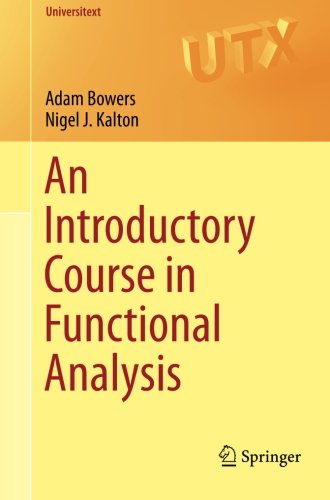

Most ebook files are in PDF format, so you can easily read them using various software such as Foxit Reader or directly on the Google Chrome browser.
Some ebook files are released by publishers in other formats such as .awz, .mobi, .epub, .fb2, etc. You may need to install specific software to read these formats on mobile/PC, such as Calibre.
Please read the tutorial at this link: https://ebookbell.com/faq
We offer FREE conversion to the popular formats you request; however, this may take some time. Therefore, right after payment, please email us, and we will try to provide the service as quickly as possible.
For some exceptional file formats or broken links (if any), please refrain from opening any disputes. Instead, email us first, and we will try to assist within a maximum of 6 hours.
EbookBell Team

4.7
96 reviewsBased on a graduate course by the celebrated analyst Nigel Kalton, this well-balanced introduction to functional analysis makes clear not only how, but why, the field developed. All major topics belonging to a first course in functional analysis are covered. However, unlike traditional introductions to the subject, Banach spaces are emphasized over Hilbert spaces, and many details are presented in a novel manner, such as the proof of the Hahn–Banach theorem based on an inf-convolution technique, the proof of Schauder's theorem, and the proof of the Milman–Pettis theorem.
With the inclusion of many illustrative examples and exercises, An Introductory Course in Functional Analysis equips the reader to apply the theory and to master its subtleties. It is therefore well-suited as a textbook for a one- or two-semester introductory course in functional analysis or as a companion for independent study.